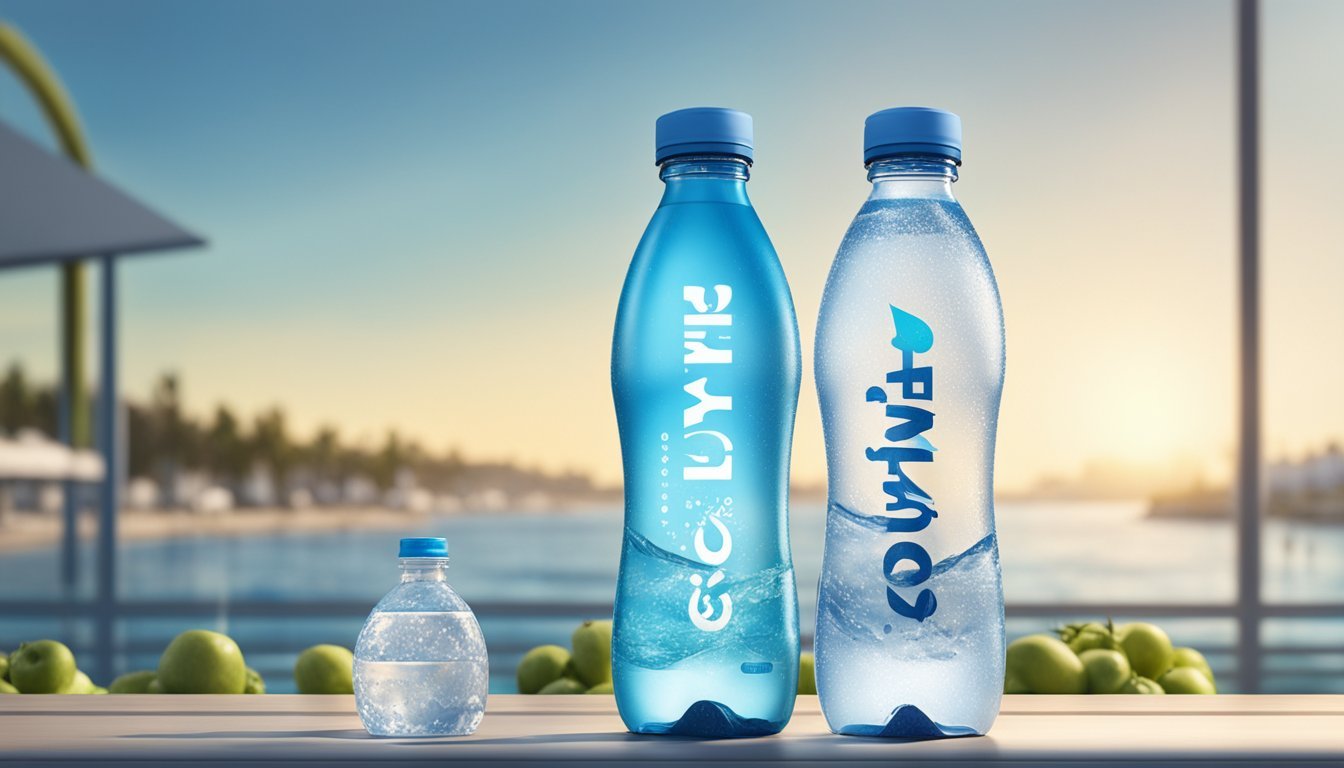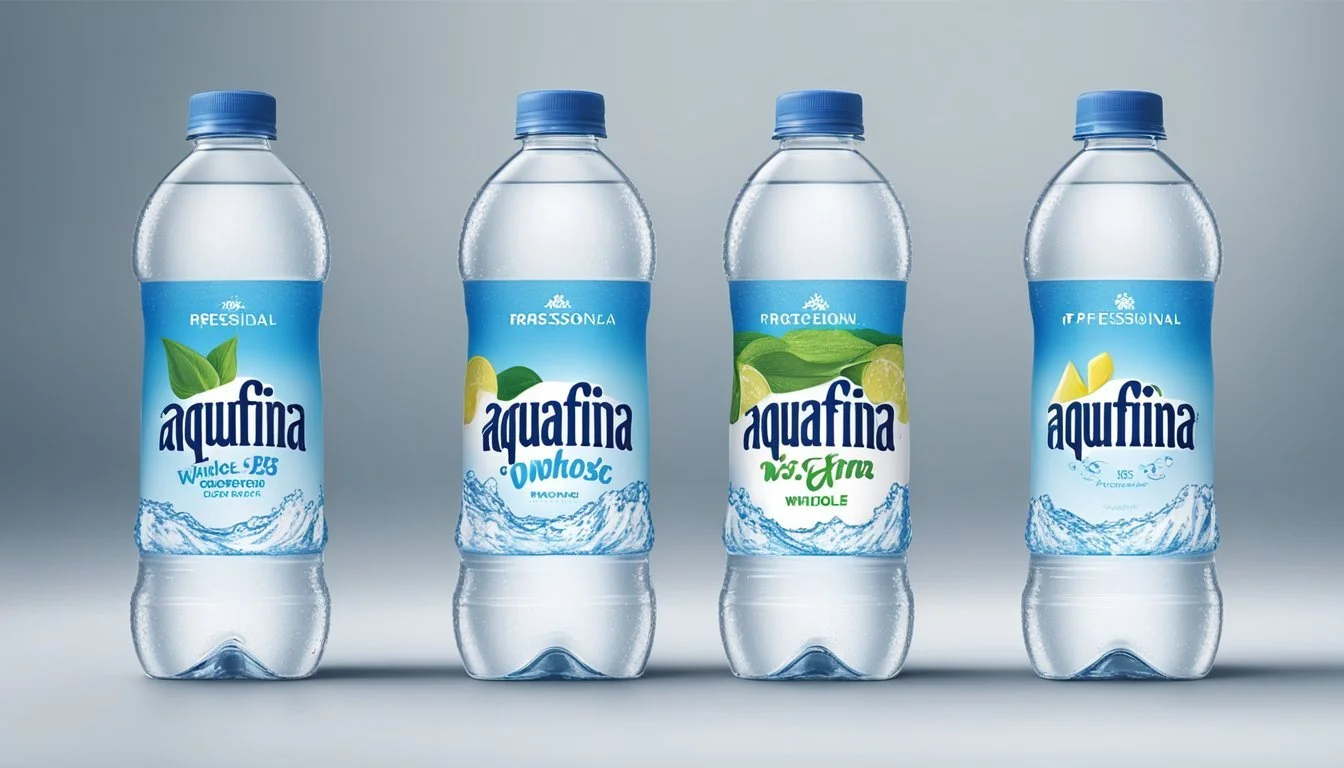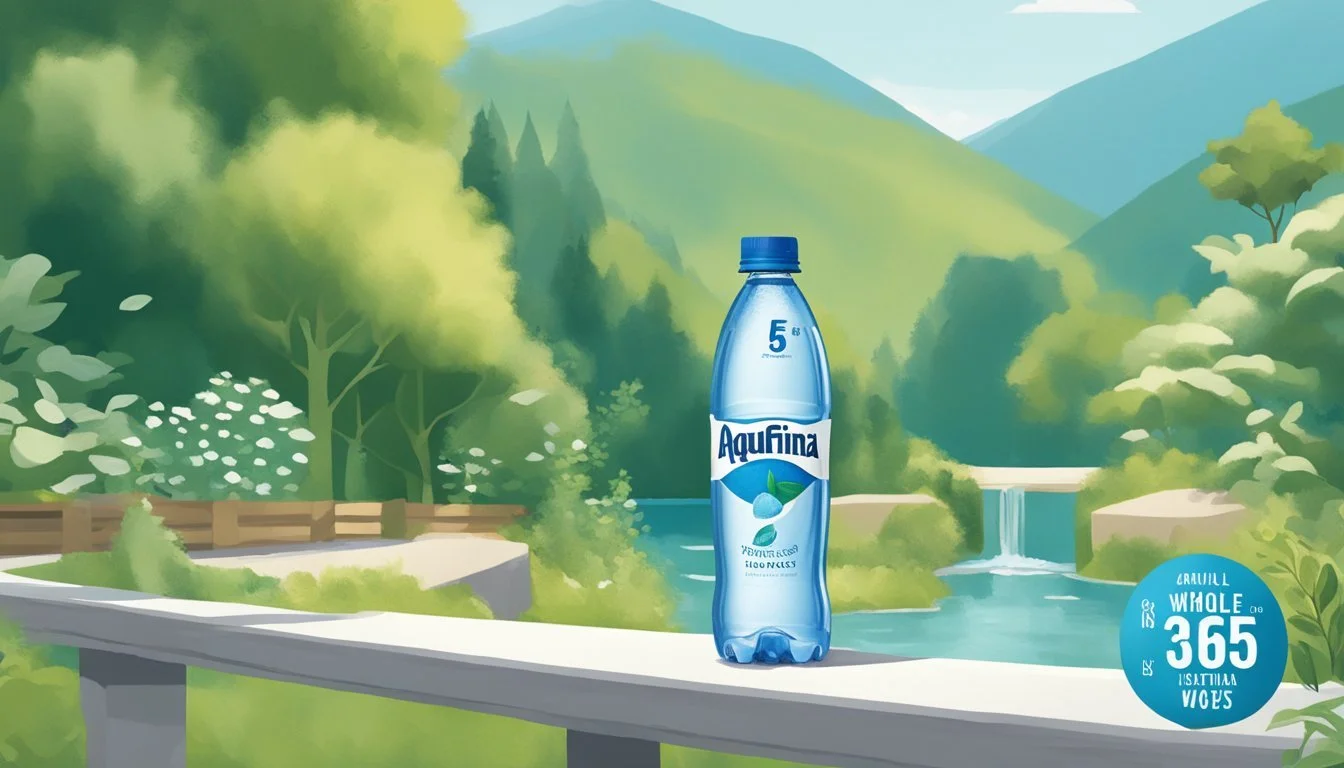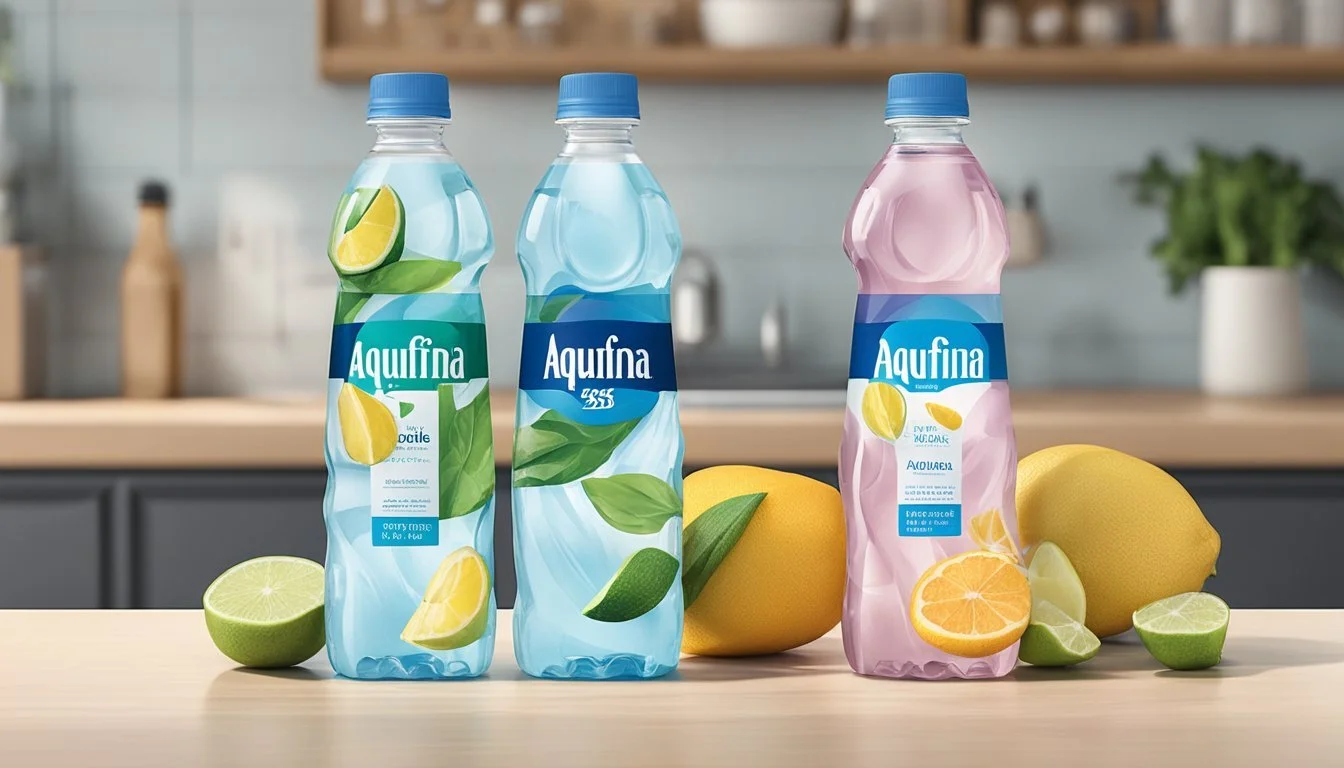Aquafina vs. Whole Foods 365
Comparing Quality and Taste
Choosing the right bottled water can be a daunting task with so many brands on the market. When it comes to Aquafina and Whole Foods 365, many consumers seek the balance of quality and taste. Both brands aim to provide convenient hydration options, but they differ in key aspects.
Aquafina, produced by PepsiCo, is known for its purification process, ensuring clean and crisp water. On the other hand, Whole Foods 365 offers spring water that some consumers prefer for its natural taste. For those who prioritize a neutral taste and want widely accessible bottled water, Aquafina is often the go-to choice.
Whole Foods 365, while slightly less accessible, appeals to those who value the source of the water and its natural qualities. Both brands have their unique features, making the choice between them depend largely on personal preferences and availability.
Understanding Bottled Water
Bottled water comes in various types, each regulated to ensure safety and quality. Understanding these different types and their impacts on health and the environment is crucial for making an informed choice between Aquafina and Whole Foods 365.
Types of Bottled Water
Different types of bottled water are available, including spring water, purified water, mineral water, and sparkling water. Spring water is derived from natural sources, containing minerals from the earth. Purified water undergoes processes like reverse osmosis or distillation to remove contaminants. Mineral water includes essential minerals such as calcium and magnesium. Sparkling water, also known as carbonated water, has added carbon dioxide for bubbles. Each type of water offers distinct characteristics that cater to varying consumer preferences.
Regulatory Standards
Bottled water is regulated by entities such as the FDA in the United States, which sets stringent standards to ensure safety. The EPA regulates tap water, establishing a framework distinct from bottled water standards. The International Bottled Water Association also provides voluntary guidance for manufacturers. These regulations cover parameters like contaminant levels, bottled water sources, and labeling requirements. Regular testing and compliance with these standards assure consumers of the product's quality and safety.
Environmental Impact
The production and disposal of bottled water have significant environmental implications. Plastic bottles are a major concern due to plastic waste, with low recycling rates exacerbating the issue. Some brands use glass bottles as a more sustainable option, though they come with their own environmental footprint. The presence of BPA in some plastics poses additional health risks. Efforts to reduce the environmental impact include using recyclable materials and adopting sustainable packaging choices. Consumers are increasingly prioritizing brands that demonstrate corporate responsibility and environmental stewardship.
Each aspect of bottled water—from type and regulatory compliance to environmental impact—plays a vital role in consumer choice. This understanding provides a solid foundation for comparing specific brands like Aquafina and Whole Foods 365.
pH Levels and Alkalinity in Bottled Water
The pH levels and alkalinity of bottled water can greatly affect its taste and potential health benefits. Understanding these aspects can help consumers make more informed choices between brands like Aquafina and Whole Foods 365.
Importance of pH Balance
The pH level measures the acidity or alkalinity of a substance on a scale from 0 to 14. For drinking water, a neutral pH of around 7 is ideal.
Water with a pH below 7 is considered acidic, which can have a sour taste and may be corrosive. Conversely, water with a pH above 7 is alkaline, often preferred for its smoother taste and perceived health benefits.
Alkaline water brands such as Essentia often claim benefits like improved hydration and acid neutralization. However, the scientific consensus on these claims varies. It is important to choose water with a balanced pH, ideally between 6.5 and 8.5.
Comparison of pH Levels
Aquafina: This popular brand from PepsiCo has a pH level around 5.5 to 7.0, making it slightly acidic to neutral. It is purified through a rigorous process but lacks significant alkalinity.
Whole Foods 365: This brand typically offers water with a pH closer to neutral, around 6.8 to 7.5. This makes it less acidic and closer to the ideal drinking water range.
Other notable brands include Evian, which offers water with a pH around 7.2, and Smartwater, which is slightly more acidic with a pH of about 6.5. Essentia is known for its high alkalinity, with a pH of 9.5.
Brand pH Level Aquafina 5.5 - 7.0 Whole Foods 365 6.8 - 7.5 Evian 7.2 Smartwater 6.5 Essentia 9.5
This comparison shows that while both Aquafina and Whole Foods 365 aim for a neutral pH, Whole Foods 365 often is closer to the ideal range for drinking water.
Comparing Aquafina and Whole Foods 365
Examining the source, purification methods, taste profiles, and environmental commitments provides a comprehensive comparison of Aquafina and Whole Foods 365 bottled water brands.
Source and Origin
Aquafina is a purified water brand originating from various municipal sources across the United States. It undergoes a thorough purification process to ensure its quality.
Whole Foods 365, on the other hand, is sourced from natural springs. This grants it a unique origin distinct from the municipal sources used by Aquafina.
Purification Methods
Aquafina employs a rigorous seven-step purification process. This includes reverse osmosis, ozone sterilization, and carbon filtration, resulting in a purified, demineralized water product.
Whole Foods 365 uses fewer purification steps since it is spring water. It undergoes basic filtration to maintain the natural minerals present in the spring water.
Taste Profiles
Aquafina's taste is often described as clean and crisp. The extensive purification removes most dissolved solids, giving it a neutral flavor that many find refreshing.
Whole Foods 365 has a slightly different taste profile due to its natural mineral content. It has a subtle, mineral-induced flavor that some might find sour with a dry aftertaste, distinguishing it from the purely neutral profile of Aquafina.
Environmental Commitments
Aquafina has initiatives aimed at reducing plastic use, including the introduction of recyclable packaging for some of their products.
Whole Foods 365 focuses heavily on sustainability. Their bottled waters often come in eco-friendly packaging, and the brand is committed to reducing waste through better recycling practices and sustainable sourcing.
Contaminants in Bottled Water
When evaluating the quality of bottled water, it is crucial to consider the presence of contaminants. Key contaminants that can be found in bottled water include heavy metals and PFAS chemicals.
Understanding Contaminants
Contaminants in bottled water often include heavy metals like lead, arsenic, and cadmium, as well as chemical compounds such as PFAS (Per- and polyfluoroalkyl substances). These substances are harmful due to their persistence in the environment and potential health impacts.
Heavy Metals:
Lead: can cause neurological damage and developmental issues.
Arsenic: linked to various cancers and cardiovascular diseases.
Cadmium: associated with kidney damage and bone defects.
PFAS chemicals are known for their resistance to breaking down, leading to persistent environmental and health concerns.
Industry Findings by Consumer Reports
Consumer Reports has identified contaminants in several bottled water brands. They tested 47 bottled waters, including both carbonated and noncarbonated varieties, and found PFAS chemicals in many of them.
Specific brands like Whole Foods 365 and others showed detectable levels of PFAS. Additionally, heavy metals like arsenic, cadmium, and lead were found in some samples. This highlights the importance of testing and regulation to ensure water safety.
Key Findings:
47 bottled waters tested
Detection of PFAS in 39 out of 100+ samples
Presence of heavy metals in certain brands
Health Implications
The presence of contaminants in bottled water poses significant health risks. Exposure to heavy metals like lead, arsenic, and cadmium through drinking water can lead to serious health issues:
Lead: neurological damage, especially in children
Arsenic: increased risk of cancer, cardiovascular diseases
Cadmium: kidney damage, skeletal issues
PFAS chemicals are equally concerning. They are linked to various health problems including liver damage, thyroid disease, and immune system suppression. Their persistence and bioaccumulative nature make them a long-term health concern.
Ensuring bottled water is free from these contaminants is essential for public safety. Regular testing and stringent standards can help mitigate these risks.
The Taste Test: Consumer Preferences
The taste of bottled water varies widely, influenced by factors like mineral content and filtration processes. Aquafina and Whole Foods 365 hold distinct places in the market due to their unique taste profiles.
Professional Opinions
Water sommeliers and experts often highlight the subtleties between different bottled water brands. Aquafina, known for its rigorous 7-step HydRO-7 filtration process, earns praise for its clean and crisp taste. This method effectively removes impurities, resulting in a neutral flavor that appeals to those who prefer their water to be free of any noticeable aftertaste.
Whole Foods 365, on the other hand, is recognized for its natural spring water origins. Experts note that it has a subtle mineral profile, which can sometimes include a slightly sour or dry aftertaste. This natural characteristic can appeal to consumers looking for a more earthy or authentic water experience, distinguishing it from purified brands like Aquafina and Dasani.
General Consumer Feedback
General consumer feedback sheds light on varied preferences. Many consumers appreciate Aquafina for its reliable and consistent taste. It's a go-to for those who want a straightforward, clean water experience without any surprises. This attribute makes it a strong competitor against brands like Nestlé Pure Life and Fiji.
Whole Foods 365 garners feedback for its more distinctive taste. Some consumers find the slight mineral flavor refreshing and a welcome change from the more sanitized taste of purified waters. However, it's worth noting that this unique profile doesn't appeal to everyone. Some reviews point out that the dry aftertaste can be off-putting, indicating a more polarizing reception compared to the broad acceptance of Aquafina.
By examining both professional opinions and general consumer feedback, one can better understand why Aquafina and Whole Foods 365 cater to different segments of the bottled water market.
Bottled Water and Hydration
Different types of bottled water can have varying impacts on hydration, especially when considering factors such as purity and electrolyte content. Understanding these nuances helps in choosing the optimal water for hydration.
Hydration Benefits
Drinking water is essential for maintaining proper hydration levels. Pure water sources like Aquafina, which undergo a rigorous 7-step HydRO-7 filtration process, are designed to remove impurities, making them suitable for effective hydration.
Whole Foods 365 water, although derived from spring sources, has a more average profile, with some reviews noting a sour and dry aftertaste. While this might not detract from hydration, it doesn't offer any additional benefits over regular purified water.
Evian is another bottled water option known for its natural mineral content, sourced directly from the French Alps. Its mineral-rich profile may be more appealing to those looking for a natural hydrating option.
Electrolyte Addition
Electrolytes play a crucial role in maintaining fluid balance in the body. Certain bottled waters, like Aquafina, do not typically add electrolytes, focusing more on purity. On the other hand, some brands enhance their water with minerals to improve taste and hydration effectiveness.
Dasani, for instance, adds a blend of minerals, including magnesium sulfate and potassium chloride, to its water. This results in an enhanced flavor and potentially better hydration compared to plain purified water. Whole Foods 365 and Evian do not specifically advertise additional electrolytes, which may be a consideration for those interested in this aspect.
In conclusion, whether you choose Aquafina or Whole Foods 365, understanding the water's purity and electrolyte content can guide you to a more informed decision for your hydration needs.
Packaging and Accessibility
Aquafina and Whole Foods 365 offer unique packaging solutions aimed at addressing sustainability and convenience. Both brands present distinct approaches to making their products accessible to consumers.
Innovations in Packaging
Aquafina primarily uses PET plastic bottles, which are lightweight and recyclable. PepsiCo, the parent company, continues to push towards more sustainable practices, although recycling rates for plastic remain low. Their bottles are also BPA-free, ensuring safety for consumers.
Whole Foods 365, on the other hand, packages its products in a variety of formats, including plastic and glass bottles. Whole Foods emphasizes sustainable sourcing and encourages recycling through partnerships and in-store drop-off locations. Their glass options cater to consumers seeking a more premium and environmentally-friendly choice.
Consumer Convenience
Aquafina's plastic bottles are designed to be lightweight and easy to carry, making them a popular choice for on-the-go hydration. The bottles' shape fits well in car cup holders and gym bags, adding to their practical convenience.
Whole Foods 365 offers both single servings and larger containers, accommodating different needs. Their packaging is also widely available in Whole Foods stores, catering to shoppers who prefer in-store purchases over home deliveries. The variety in packaging sizes and types helps meet diverse consumer preferences efficiently.
Corporate Responsibility and Sustainability
Aquafina and Whole Foods 365 each place an emphasis on their sustainability efforts, focusing on environmental impact and corporate responsibility.
Sustainability Efforts of Brands
Aquafina, a product of PepsiCo, integrates sustainable practices into its operations. Their HydRO-7 filtration process ensures high-quality water while minimizing environmental impact. PepsiCo aims to reduce plastic use by increasing recycled content in bottles and exploring alternative packaging methods. They also have initiatives to reduce water consumption and improve water use efficiency in their bottling facilities.
Whole Foods 365 water, associated with Nestlé Waters, prioritizes sustainability through sourcing and packaging. They often use local sources to reduce transportation emissions. Additionally, Whole Foods advocates for environmental responsibility by promoting reusable bottles and minimizing single-use plastic. Their recycling programs and emphasis on reusable glass bottles further highlight their commitment to reducing their ecological footprint.
Conclusion
When comparing Aquafina and Whole Foods 365 bottled water, several factors distinguish each brand.
Aquafina undergoes a 7-step HydRO-7 filtration process, which aims to remove impurities other waters might leave behind. This process is meticulous, targeting specific substances to deliver a purified product. Aquafina also adds a blend of mineral salts for enhanced taste.
Whole Foods 365 emphasizes its natural and organic origins. Sourced from natural springs, it's touted for its commitment to quality and environmental stewardship. Whole Foods 365 often appeals to consumers looking for fewer additives.
Taste and Purity:
Aquafina: Clean and crisp with added minerals for taste.
Whole Foods 365: Fresh and straightforward, with a hint of natural spring taste.
Availability and Price:
Aquafina: Widely available, affordable.
Whole Foods 365: Mostly available in Whole Foods stores, can be more expensive.
Environmental Considerations:
Aquafina: Uses traditional plastic bottles, focuses on large distribution.
Whole Foods 365: Supports eco-friendly practices, often uses more sustainable packaging options.
User Preference:
Aquafina appeals to those who prioritize highly purified water with added minerals. Whole Foods 365 attracts consumers preferring natural spring water with an emphasis on sustainability.
Both Aquafina and Whole Foods 365 bottled waters offer distinct advantages, catering to different tastes and values. The choice depends on individual preferences for taste, purity, price, and environmental impact.






